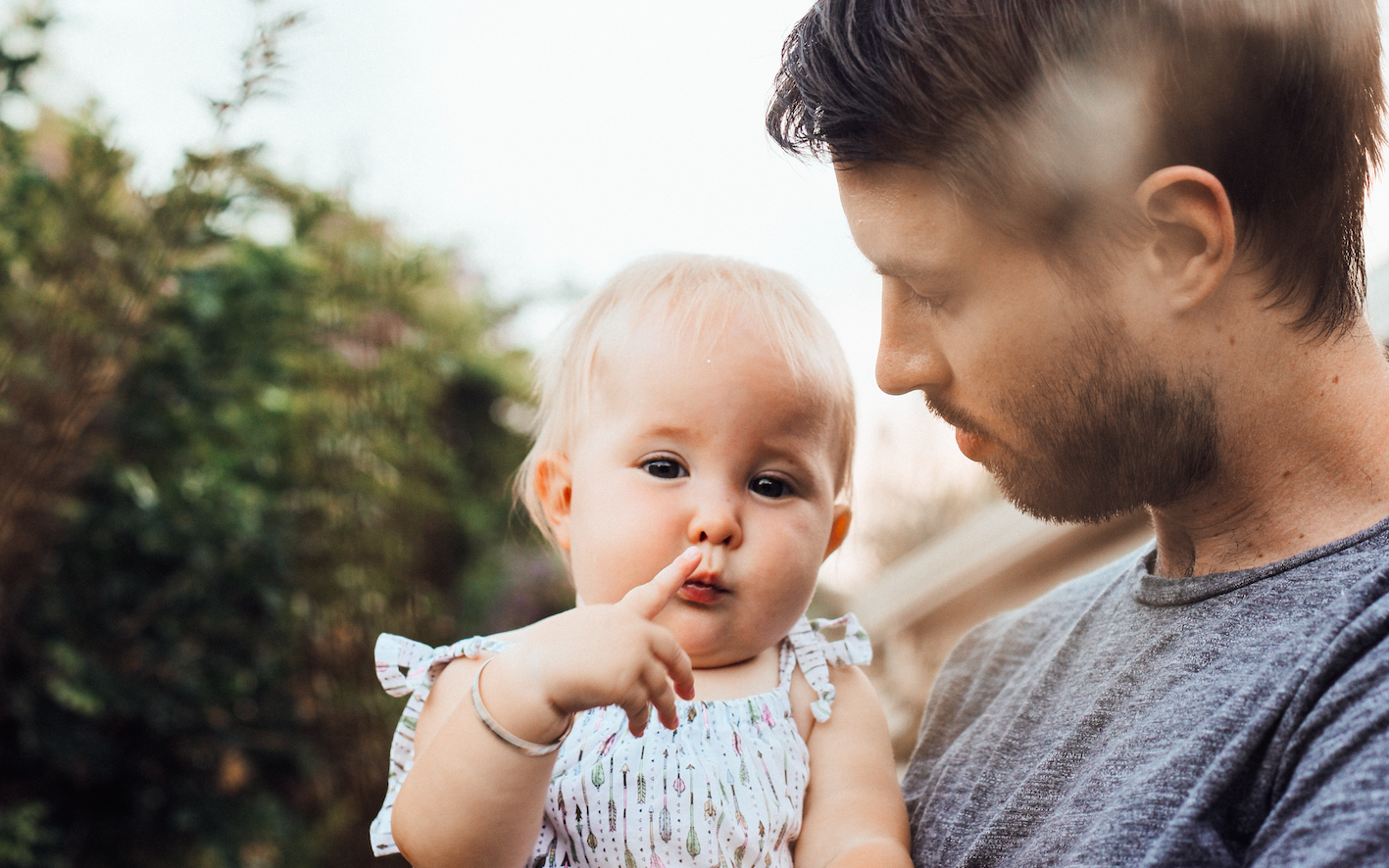“I didn’t shed a tear at the funeral of my father. He was a stranger to me,” writes Cari Penner in Finding Father, a new collection of essays by Mennonite women writing about their dads. Penner calls her essay a “love story.” It’s a moving tribute to a man whose affection she often craved. But it is also a mystery, an attempt to uncover more about her father — who grew up on the Prairies among 14 siblings during the scarcity of the 1930s — and why he hid himself.
“My father’s sole purpose within his family was to fulfil this role of provider and commanding officer,” Penner writes. “Emotional connectedness appeared to be beyond his ability.” Only in his last years, as he gradually lost control of his body to a degenerative palsy, did Penner catch glimpses of what he had withheld. Though she doesn’t find satisfying answers in her essay, she chooses to absolve him of his failures as a parent. He was, she writes, “a human being simply trying to be the best husband and father he could be.”

A consistent current flows through the essays in Finding Father: the unfulfilled desire for an emotional relationship. The collection is edited by Mary Ann Loewen and published by the University of Regina Press. I contributed to a previous essay collection Loewen commissioned, in which Mennonite men wrote about their mothers. The theme of that anthology might have been rebellion — men struggling to break free from family expectations. In Finding Father, those polarities are reversed; children long for a closeness that’s denied them. Penner’s story feels the most bracingly honest in this regard, but the sentiment recurs throughout the collection. Fathers enter and exit these stories as providers, protectors, heroes, philosophers, teachers, pastors, mythical figures and glamorous absentees, but seldom as the emotionally attentive fathers their daughters wish for.
In rare moments, these men do bare their feelings, when they are near death or behind the pulpit or speaking through their wives. And their daughters accept, forgive, excuse and account for the emotional distance of their fathers, grateful for whatever slivers of vulnerability they’re able to share. It’s true that many of these fathers lived through world wars, traumatic migrations, poverty and family separations, but so did their wives, who remain capable of emotional communication.
As I read the book, I felt sad, both for the daughters who yearned for deeper relationships, and for the fathers who lacked the tools to be vulnerable. I too am a father who struggles to recognize his own emotions and share them with his children. Like the men in Finding Father, I was raised to see masculine virtue in being quiet and in control. Talking honestly about my emotions feels like the opposite of that. If I crack open the sluice gate, who knows what will pour out?
Much has changed since the dads in Finding Father were my age. Feminism has drastically revamped the landscape of fatherhood in Canada, to everyone’s advantage. I’m the primary caregiver for my two children while my wife works outside the home. In 1976, one-in-70 Canadian families had a stay-at-home dad. Today it’s closer to one-in-10. But some things still haven’t changed all that much.
Recently, my wife was talking with her own father and began to relate an emotionally fraught experience. He interrupted her mid-sentence to ask what kind of popsicle his granddaughter was eating.
“Dad, you really have a hard time talking about people’s difficult emotions, don’t you?” she said to him.
He laughed uncomfortably. “I guess I’m not as empathetic as you,” he replied, before steering the conversation to our recently gravelled parking pad.

Author Gemma Hartley defines emotional labour as “the unpaid, invisible work we do to keep those around us comfortable and happy.” Women, she writes in her book Fed Up, have been doing that work for ages. “We lend an ear. We offer advice. We soothe egos and acknowledge the feelings of others while muting our own. We nod. We smile. We care. Perhaps most importantly, we do so without expecting any reciprocation, because emotional labor is women’s work.” For generations, we’ve been told that female brains are wired for empathy and male brains for theoretical problem-solving. It’s a cultural construct that “gives men an excuse to be emotionally lazy,” Jess Zimmerman wrote in a provocative article in The Toast in 2015

It turns out that the ability to connect emotionally has more to do with how we’re socialized than our biology, points out journalist Rachel Giese in her 2018 book, Boys: What it Means to Become a Man. Though boys have an innate potential for “empathy, connection, kindness and affection,” they are still being raised to distrust and hide their emotions, in particular fear, sadness, jealousy and shame. “Boys don’t think their feelings are normal,” a student tells a researcher in the book.
More on Broadview: Canadian dads want to spend more time with their families
But leaving emotional labour to women saddles them with an unfair burden, strains relationships and impoverishes men. We see this happen again and again in Finding Father: mothers working overtime to translate their husbands’ emotions to their children or to compensate for the men’s inability to express themselves.
As a parent, part of my job is to teach my children to interpret their own emotions, which often surge over them with a nameless and terrifying force. Not long ago, my four-year-old daughter lay on the floor and screamed because she wanted to be at the top of the stairs but didn’t want to climb them herself and didn’t want anyone to carry her up. Her irrational anger triggered my own, sending our household into a whirlwind of unregulated feelings. I’ve been living with my own emotions for 34 years longer than she has, but they still catch me by surprise. One thing I’ve realized is that I can’t help my children recognize their emotions until I’ve befriended my own.

To that end, I recently decided to buy myself a Father’s Day gift — a fat book called The Language of Emotions. Its author, Karla McLaren, explains how instead of categorizing our feelings into good emotions to be encouraged and bad emotions to be quelled, we need to learn to acknowledge all of our emotions — especially the troublesome ones like anger and fear — as important messengers, and as tools that we can learn how to use. “If you trust and attend to your emotions, they’ll take care of you. If you don’t, your life will be pretty miserable, and you’ll leave a mess for others to clean up,” she writes. I’m learning, slowly, to recognize my feelings when they come, and to allow them to flow through me more easily.
I should add one more thing. I didn’t actually go out and buy The Language of Emotions. I wrote that sentence because I wanted to take credit for it, but, in fact, I found it on my wife’s bookshelf. She’d already done the emotional labour of encouraging me to read it.
This column first appeared in the June 2019 issue of Broadview with the title “Pure Emotion.” For more of Broadview’s award-winning content, subscribe to the magazine today.
















Good topic to discuss, I agree and disagree with the writer on male emotions.
We often follow the example of our parents – good or bad. If boys/men are raised that it is normal to hide your feelings, then that is what we learn.
Unfortunately the author neglects one societal implication, if both parents are emotional wrecks; there will be total instability within the family structure.
To be fair, men and women are different in a lot of ways. I think, whether learned or inherent, men are more logically bent, and can think through their emotions, rather than be spontaneous. Not saying men shouldn’t show emotions.
Women should appreciate their ability to show emotions quickly, it often gives us men the red light when we need it most; otherwise, we will barrel through life, and issues, thinking all is well.
Men, we have the perfect example of Christ to show us when emotions are fit. He was full of joy, He rejoiced, He wept, He was angry, He was frustrated, and He was empathetic, to name a few.
Finally, for those who do not have perfect fathers – regardless of the issue, you have God, the perfect Father, who through many ways can claim – Psalm 68:5 “A father to the fatherless, a defender of widows, is God in his holy dwelling.”
Jordan Peterson has more positive and wisdom about male masculinity than anyone in the world right now. Read him and listen to him when you get discouraged about what it means to be a man.